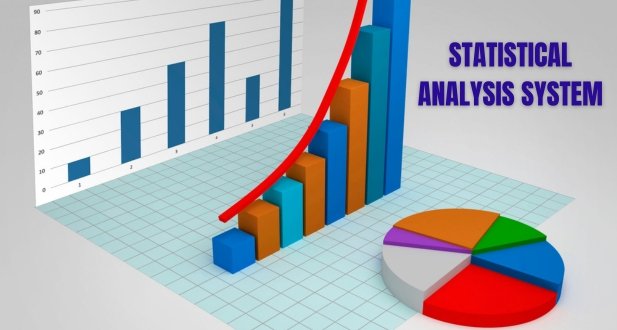What is meant by SAS Certificate?
A SAS Certificate is a credential offered by SAS Institute, Inc., a software company that provides a suite of analytics and data management tools. The SAS Certificate is designed to validate individuals’ proficiency in using SAS software for data analysis, data management, and statistical modeling.
The SAS Certificate program is divided into several levels of certification, including the SAS Certified Base Programmer for SAS 9, SAS Certified Advanced Programmer for SAS 9, and SAS Certified Statistical Business Analyst Using SAS 9. Each level of certification requires candidates to demonstrate their skills and knowledge by passing one or more exams.
To obtain a SAS Certificate, individuals must first complete the necessary training courses, which can be taken either online or in-person. These courses cover the key concepts and techniques used in SAS software and prepare individuals for the certification exams. The exams themselves are administered by Pearson VUE, a third-party testing company, and typically consist of multiple-choice questions and hands-on exercises.
The SAS Certificate is recognized worldwide as a mark of excellence in the field of analytics and data management. It is often required or preferred by employers looking for candidates with demonstrated proficiency in SAS software. Additionally, obtaining a SAS Certificate can help individuals advance their careers, increase their earning potential, and enhance their credibility in the industry.
The SAS Certificate program is a rigorous and comprehensive certification program designed to validate individuals’ proficiency in using SAS software for data analysis, data management, and statistical modeling. It is widely recognized as a mark of excellence in the field of analytics and data management and can help individuals advance their careers and increase their earning potential.
What is SAS certification for?
SAS certification is a professional accreditation program offered by SAS Institute, a leading software company that specializes in analytics and data management solutions. The program is designed to validate the knowledge and skills of individuals who use SAS software to solve business problems, manage data, and perform statistical analysis.
There are various SAS certification exams available, ranging from foundational to advanced levels, each of which focuses on different areas of SAS technology. These exams cover topics such as data manipulation, data analysis, predictive modeling, SAS programming, and more. Candidates who pass these exams earn SAS credentials, which are recognized worldwide as proof of expertise in SAS technology.
SAS certification is valuable for individuals who work in fields such as business intelligence, data analysis, and statistical modeling. These professionals use SAS software to perform tasks such as data cleaning, data transformation, data visualization, and data modeling. SAS certification enables them to demonstrate their skills and knowledge to potential employers, which can enhance their career prospects.
Moreover, SAS certification also provides an opportunity for individuals to learn new skills and keep up-to-date with the latest advancements in SAS technology. The SAS Institute offers training courses and resources to help candidates prepare for the certification exams. These courses cover a range of topics, including data management, statistical analysis, and SAS programming, and can be taken online or in person.
SAS certification is a valuable investment for individuals who want to advance their careers in the field of analytics and data management. By earning SAS credentials, they can demonstrate their proficiency in SAS technology, increase their earning potential, and stay competitive in the job market.
Types of SAS Certificate
SAS, which stands for Statistical Analysis System, is a widely used software suite for advanced analytics, data management, and business intelligence. It is used by businesses, researchers, and government organizations around the world to gain valuable insights from their data. To demonstrate proficiency in using SAS, individuals can obtain various types of SAS certificates, which are recognized worldwide as a mark of excellence in SAS skills.
In this article, we will discuss the different types of SAS certificates and what they entail.
SAS Certified Base Programmer for SAS 9
The SAS Certified Base Programmer for SAS 9 certification is the entry-level certification for individuals who are new to SAS programming. It tests the candidate’s ability to write and execute SAS programs, import and export raw data files, and manipulate and transform data. To earn this certification, candidates must pass a multiple-choice exam that covers topics such as SAS programming syntax, data manipulation, and basic SAS procedures.
SAS Certified Advanced Programmer for SAS 9
The SAS Certified Advanced Programmer for SAS 9 certification is for individuals who have already obtained the base certification and want to advance their skills. This certification tests the candidate’s ability to write advanced SAS programs, manipulate and transform complex data sets, and use advanced SAS procedures. To earn this certification, candidates must pass a multiple-choice exam that covers topics such as advanced data manipulation techniques, macro programming, and SQL programming.
SAS Certified Data Scientist
The SAS Certified Data Scientist certification is for individuals who want to demonstrate their ability to use SAS software to analyze complex data sets and make data-driven decisions. This certification tests the candidate’s ability to perform advanced statistical analysis, build predictive models, and communicate results effectively. To earn this certification, candidates must pass a multiple-choice exam that covers topics such as data preparation, machine learning, and statistical modeling.
SAS Certified Big Data Professional
The SAS Certified Big Data Professional certification is for individuals who want to demonstrate their ability to work with big data using SAS software. This certification tests the candidate’s ability to access and manipulate data in Hadoop, write SAS programs to analyze big data, and work with SAS visual analytics. To earn this certification, candidates must pass a multiple-choice exam that covers topics such as Hadoop architecture, Hive and Pig, and SAS programming for big data.
SAS Certified Visual Business Analyst
The SAS Certified Visual Business Analyst certification is for individuals who want to demonstrate their ability to use SAS Visual Analytics to analyze data and create interactive visualizations. This certification tests the candidate’s ability to create reports and dashboards, explore data visually, and use SAS Visual Analytics Explorer. To earn this certification, candidates must pass a multiple-choice exam that covers topics such as data exploration, data visualization, and report building.
SAS Certified Platform Administrator for SAS 9
The SAS Certified Platform Administrator for SAS 9 certification is for individuals who want to demonstrate their ability to manage and administer a SAS environment. This certification tests the candidate’s ability to install and configure SAS software, manage SAS metadata, and troubleshoot SAS software. To earn this certification, candidates must pass a multiple-choice exam that covers topics such as SAS architecture, metadata security, and backup and recovery procedures.
SAS Foundation Tools certifications
SAS Certified Specialist:
Base Programming Using SAS 9.4 – This certification is designed for individuals who have a solid understanding of SAS programming concepts and are familiar with the SAS 9.4 environment. The certification exam tests knowledge of data manipulation, basic programming concepts, and data management techniques. This certification is a prerequisite for other SAS certifications, including the SAS Certified Professional: Advanced Programming Using SAS 9.4.
SAS Certified Professional:
Advanced Programming Using SAS 9.4 – This certification is for individuals who have a deep understanding of SAS programming concepts and are experienced in data analysis, manipulation, and reporting. The certification exam tests knowledge of advanced programming techniques, including macro programming, SQL, and advanced data management techniques. This certification is a prerequisite for the SAS Certified Specialist: Machine Learning Using SAS Viya 3.4.
SAS Certified Specialist:
Machine Learning Using SAS Viya 3.4 – This certification is designed for individuals who are familiar with SAS programming concepts and are interested in using SAS Viya for machine learning. The certification exam tests knowledge of machine learning algorithms, data preparation techniques, and model assessment and deployment techniques. This certification is a prerequisite for the SAS Certified Professional: Artificial Intelligence and Machine Learning.
SAS Certified Professional:
Artificial Intelligence and Machine Learning – This certification is for individuals who have a deep understanding of machine learning concepts and are experienced in building and deploying machine learning models. The certification exam tests knowledge of deep learning techniques, natural language processing, and computer vision techniques. This certification is a prerequisite for the SAS Certified Specialist: Forecasting and Optimization Using SAS Viya 3.4.
SAS Certified Specialist:
Forecasting and Optimization Using SAS Viya 3.4 – This certification is designed for individuals who are familiar with SAS programming concepts and are interested in using SAS Viya for forecasting and optimization. The certification exam tests knowledge of forecasting techniques, optimization techniques, and simulation techniques. This certification is a prerequisite for the SAS Certified Professional: Data Scientist Using SAS 9.
SAS Certified Professional:
Data Scientist Using SAS 9 – This certification is for individuals who have a deep understanding of data science concepts and are experienced in data analysis, modelling, and deployment. The certification exam tests knowledge of data preparation techniques, modelling techniques, and deployment techniques. This certification is the highest-level certification for SAS Foundation Tools and is a prerequisite for the SAS Certified Advanced Analytics Professional.
Conclusion
In conclusion, earning a SAS certificate can be a worthwhile investment in your career if you are interested in data science or analytics. It can help you demonstrate your expertise to potential employers and improve your job prospects. To earn a SAS certificate, you need to pass one or more exams, which test your knowledge and skills in SAS programming and data analysis. There are several different SAS certificates available, ranging from entry-level to advanced levels, so you can choose the one that best fits your career goals and current skill level.
Frequently Asked Questions
You can prepare for a SAS Certification Exam by studying the exam topics and using SAS resources such as SAS training courses, SAS documentation, and SAS practice exams. It’s also helpful to gain hands-on experience using SAS software.
SAS Certification Exams are typically multiple-choice and administered via computer. The exam questions are designed to test your knowledge and understanding of SAS software and programming concepts.
The length of a SAS Certification Exam varies depending on the type of exam. Typically, exams are timed and range from 2 to 3 hours.
The passing score for a SAS Certification Exam varies depending on the exam. However, typically you must achieve a score of at least 70% to pass.
The cost of a SAS Certification Exam varies depending on the type of exam and your location. However, typically exams cost between $180 and $250 USD.
A SAS Certificate is valid for three years. After three years, you must renew your certification by passing the current version of the exam or by completing a SAS Continuing Education course.
To renew your SAS Certification, you must pass the current version of the exam or complete a SAS Continuing Education course. You must renew your certification every three years.
A SAS Certificate can improve your career prospects by demonstrating your proficiency in SAS software and programming. It can also increase your earning potential and give you a competitive advantage in the job market. Additionally, SAS Certifications can help you develop new skills and knowledge, which can enhance your job performance.




